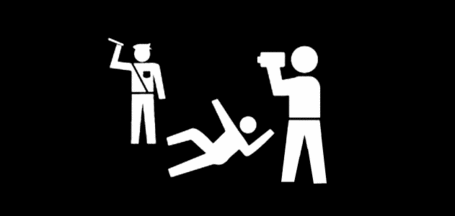
When Berkeley Copwatch formed back in 1990, police were initially resistant to the idea of people watching them with video cameras. Some copwatchers would be harassed or even arrested for documenting police stops. But with conflict, there came resolution. The Berkeley Police Department eventually created a departmental policy known as “Bulletin 91” which required the Berkeley police to provide the least amount of restrictions to civilian oversight of the police during contained situations.
While the public has the right to observe and videotape police during the course of their duty, if you intend to pro-actively monitor the police, it doesn’t hurt to pressure your local department to develop a policy that outlines their requirement of officers to respect people’s right to observe.
Below are several examples of different cities’ copwatch policies:
Denver Police’s Copwatch Policy
Denver Police Training Bulletin (Regarding Copwatch) by WeCopwatch
NYPD’s Policy (Page 25)
NYPD Patrol Guide (Outlining Public’s Right to Observe) by WeCopwatch
New Haven PD’s Policy
New Haven Police Order 311 Citizens Right to Video by WeCopwatch
Chevy Chase Village Police Department’s Policy
Chevy Chase Village Police Department’s police on the Right to Videotape Police by WeCopwatch